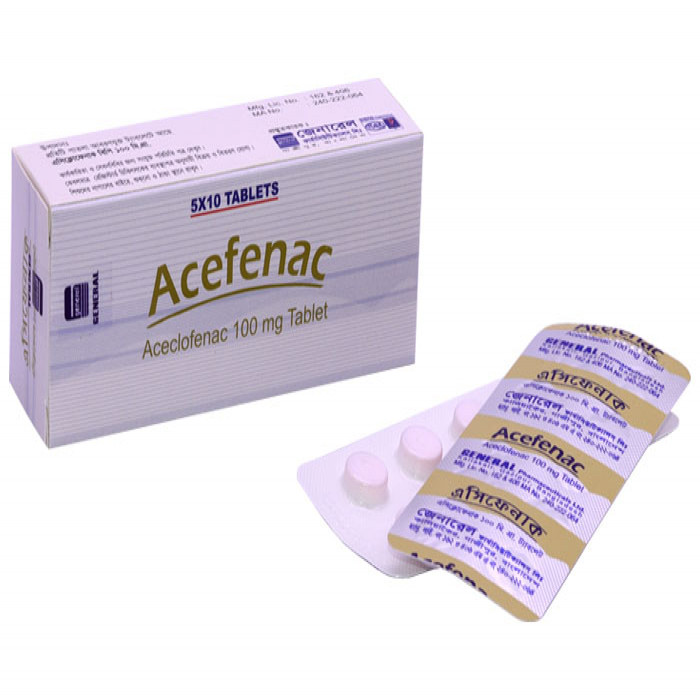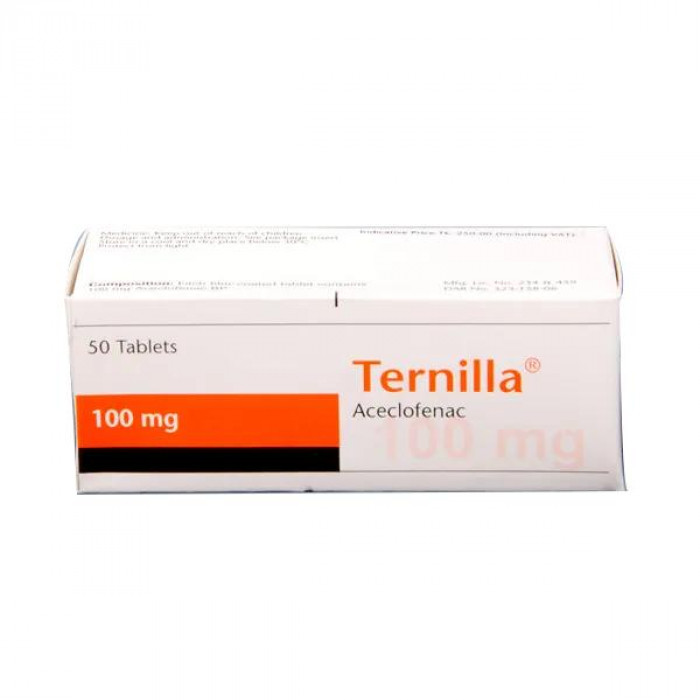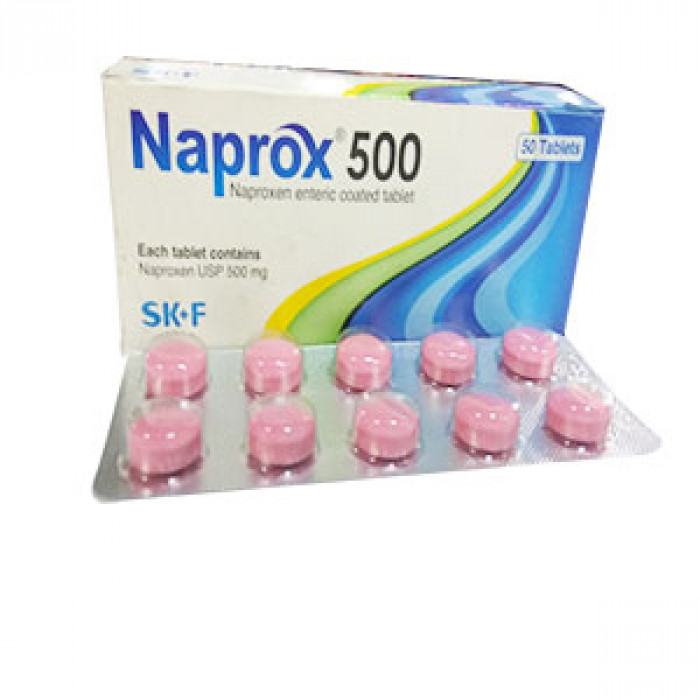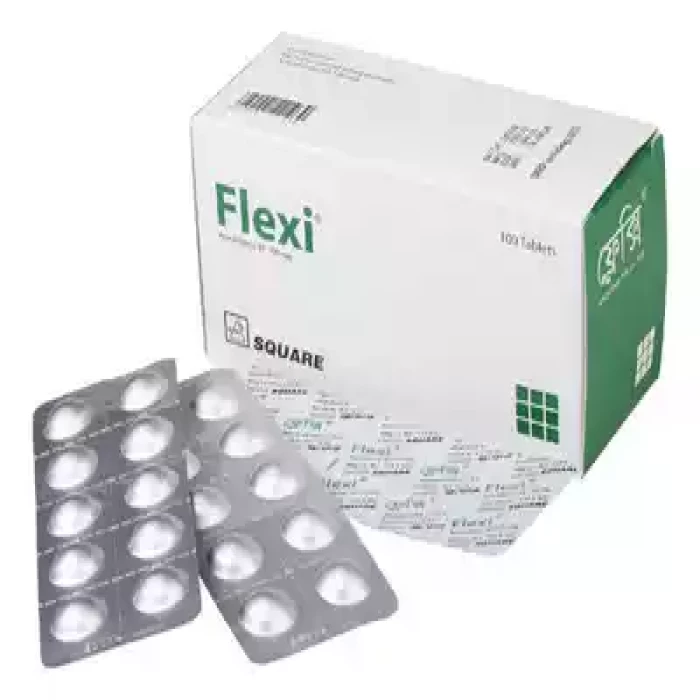
✔ 100% Authentic Product
👁️ Currently Viewing 524
Acefenac 100mg Tablet 1 Strip
Acefenac (Aceclofenac)
- Non-steroidal Anti-inflammatory Drugs (NSAIDs)
- Drugs for Osteoarthritis & Rheumatoid Arthritis

100% Genuine Products, Guaranteed
Safe & Secure Payments, Always
Fast, Secure & Efficient Delivery
Proper Packaging
 Cash on Delivery - All over Bangladesh
Cash on Delivery - All over Bangladesh Regular Delivery - 8-12 Hours, Dhaka City*
Regular Delivery - 8-12 Hours, Dhaka City* Regular Delivery - 24-48 Hours, All Over Bangladesh*
Regular Delivery - 24-48 Hours, All Over Bangladesh* ফ্রি ডেলিভারি! - ১৪৯৯ টাকা+ অর্ডারে ঢাকা
শহরে ।
ফ্রি ডেলিভারি! - ১৪৯৯ টাকা+ অর্ডারে ঢাকা
শহরে । ফ্রি ডেলিভারি! - ২৯৯৯ টাকা+ অর্ডারে ঢাকার
বাহিরে ।
ফ্রি ডেলিভারি! - ২৯৯৯ টাকা+ অর্ডারে ঢাকার
বাহিরে ।
✅ Description:
Acefenac is indicated for the relief of pain and inflammation in the following conditions:
- Osteoarthritis
- Rheumatoid arthritis
- Ankylosing spondylitis
- Toothache
- Lumbago
- Trauma-related pain
✔️ Common side effects may include:
- Gastrointestinal discomfort
- Nausea
- Dyspepsia
- Abdominal pain
- Skin rash
- Dizziness
✔️ How does Acefenac 100 work?
Aceclofenac is a non-steroidal anti-inflammatory drug (NSAID) with potent analgesic and anti-inflammatory effects.
- It works by inhibiting cyclooxygenase (COX), an enzyme critical for prostaglandin synthesis, which plays a key role in inflammation and pain.
Following oral administration, Aceclofenac is rapidly and completely absorbed in its unchanged form.
✔️ Dosage & Administration
- Extended-release tablet: 200 mg once daily
- Film-coated tablet: 100 mg twice daily
- Pediatrics: Not recommended due to lack of clinical data in children.
✔️ Drug Interactions
While no major interactions have been consistently observed, caution and monitoring are advised when used with the following:
- Lithium & Digoxin: May raise plasma levels
- Diuretics: May alter effectiveness
- Anticoagulants: May enhance bleeding risk
- Methotrexate: Plasma levels may increase
✔️ Known hypersensitivity to Aceclofenac
History of asthma, urticaria, or allergic-type reactions after taking aspirin or other NSAIDs
✔️ Use in Pregnancy & Lactation
Use is not recommended during pregnancy or breastfeeding unless needed and the benefits outweigh potential risks to the fetus or infant.
✔️ Use with caution in patients with:
- Peptic ulcer disease or GI bleeding
- Hepatic or renal impairment
- Cardiac conditions
- History of dizziness or urticaria
Patients should be closely monitored for adverse symptoms, especially during long-term therapy.
✔️ Storage Conditions
- Store in a dry place, away from heat and light
- Keep out of reach of children
Disclaimer:
ePharma sole intention is to ensure that its consumers get proper
information as musch as possible. Although we do not guarantee the
accuracy and the completeness of the information that provided and
here information is for informational purposes only.
The information contained herein should NOT be used as a substitute
for the advice of a qualified physician. This may not cover
everything about particular health conditions,
lab tests, medicines, all possible side effects, drug interactions,
warnings, alerts, etc. Please consult your healthcare professional
and discuss all your queries related to any disease or medicine. We
intend to support, not replace, the doctor-patient relationship.









